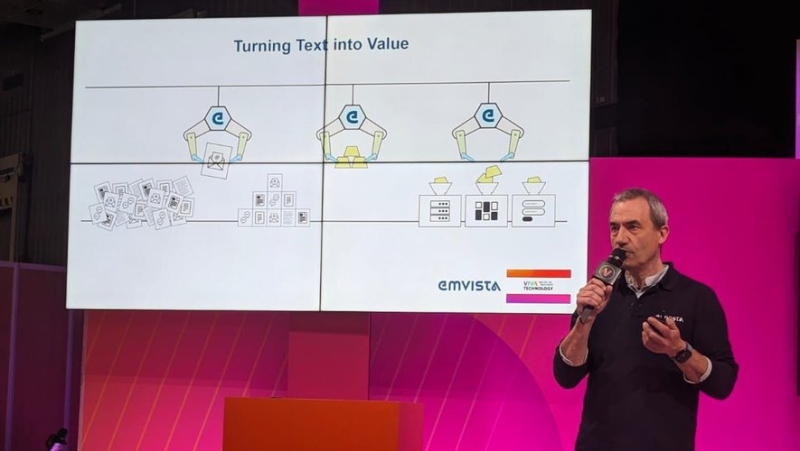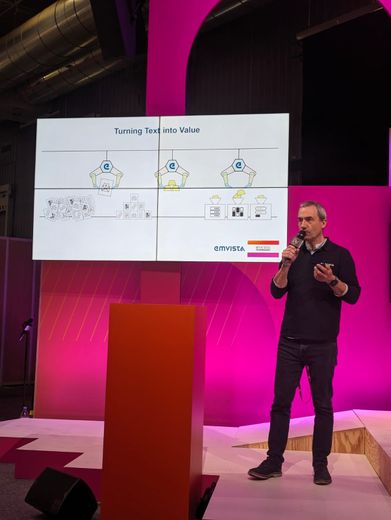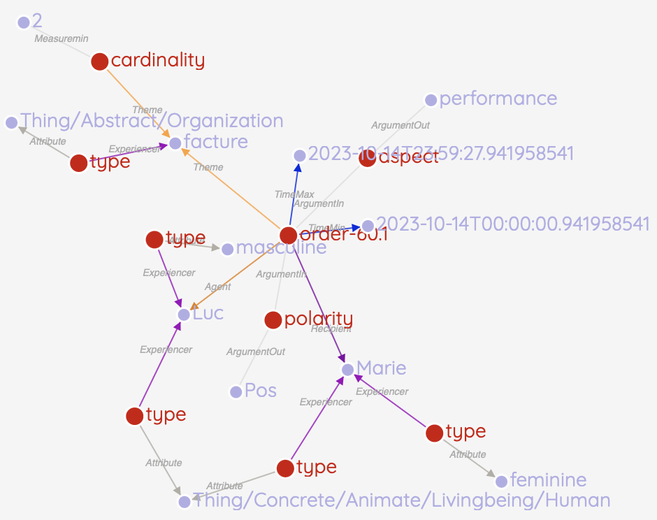Montpellier: the start-up Emvista uses artificial intelligence to structure texts


Philippe Garnier presents the company Emvista at the last VivaTech trade show. DR – DR
Based in Jacou, the start-up of around ten employees Emvista aims to structure texts in natural language. Using "AI (artificial intelligence) analytical", the company is primarily targeting the legal and banking sectors.
The start-up Emvista, based in Jacou near Montpellier, was recently part of the Occitan delegation at the VivaTech exhibition of the regional economic development agency Ad’Occ. In an edition of the show particularly focused on generative artificial intelligence (AI), Emvista presented its solution "analytical AI", the aim of which is to "valorize the information" contained in unstructured texts.
"Our solution does not generate text, as ChatGPT-style generative AI software can do, explains Philippe Garnier, co-founder of the company. We indeed believe that there is enough text for humans! Our mission is to help them master the flow of texts they handle in a professional setting. Our tool analyzes the flow of these texts, and generates graphs, which show the structure and essential information contained in the analyzed texts."
These graphs, which "structure unstructured natural language", can facilitate processing of this data in a context professional, sometimes tedious. Thus, it is possible "to accelerate the work of humans, to allow them to decide with the elements that we have detected in the test."

View of a screen of the Emvista software. DR – DR
The company admits in particular "to be particularly interested in the theme of succession". A main reason for this:"It’is a subject that involves the creation of a whole bunch of documents, which are now reviewed by humans, which is not a very rewarding task". The structuring of information thus allows the sector to automate and prioritize this information for computer processing, for example integrating it into a database.
Succession is not the only sector targeted by the structure. "We are also involved in contextualization and data processing for the banking sector, which also has a lot of data to process."
Extract and prioritize data from an unstructured language
The technology was developed in the region, in partnership with researchers from Liris, the Toulouse branch of LIRMM specializing in data extraction. "We wanted lightweight technology, which could be installed directly on our clients' servers." It is indeed difficult to ask a large company, which hosts sensitive data, to store its information on a public cloud…
Conversely, the eight-person start-up offers a service that can be used by everyone, in remote mode (SaaS). This involves prewriting emails, in response to a message received by the user. "We will study the original email to pre-write a response that will take into account the intentions of the original sender. In particular his feelings, his mood, to prepare a response. We even have a service that will detect insults in the original message!" laughs the founder.
A solution that is of great interest to companies in the banking and legal sector, who have a maximum number of messages to process, and wish to keep the people responsible for responding to more rewarding tasks. We thus see the power of the Emvista software, which can also "integrate as a component of third-party professional software, in terms of e-mail processing" ;.
I subscribe to read more




